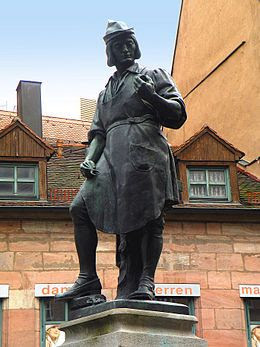Download it
The Timekeeper's Legacy: The Story of Peter Henlein, the Founder of the Modern Clock
Time, a fundamental concept that governs our daily lives, has been measured and kept track of for thousands of years. From sundials to atomic clocks, the evolution of timekeeping has been a gradual process, with numerous innovators contributing to its development. One man, however, stands out as the founder of the modern clock: Peter Henlein, a German clockmaker who revolutionized timekeeping in the 15th century. In this blog post, we'll explore the story of Peter Henlein, delve into the history of clockmaking, and examine the impact of Henlein's innovations on modern society. The Early Life and Career of Peter Henlein Peter Henlein was born around 1475 in Nuremberg, Germany. Growing up in a city known for its metalworking and craftsmanship, Henlein was exposed to the art of clockmaking from a young age. He began his apprenticeship as a clockmaker in his teenage years and quickly demonstrated a talent for innovation and problem-solving. The Development of the Modern Clock In the 15th century, clocks were large, cumbersome devices that were often inaccurate and unreliable. Henlein's breakthrough came when he developed the first pocket watch, a compact, portable timepiece that could be carried on the person. This innovation was made possible by Henlein's development of the mainspring, a coiled spring that stored energy and powered the clock's mechanism. The Impact of Henlein's Innovations Henlein's innovations had a profound impact on modern society, transforming the way people kept track of time and revolutionizing various industries, including: 1. Navigation and Transportation: Accurate timekeeping enabled sailors and travelers to navigate more efficiently, reducing the risk of accidents and improving overall safety. 2. Industry and Manufacturing: The development of portable timepieces enabled workers to coordinate their activities more effectively, improving productivity and efficiency. 3. Science and Research: Accurate timekeeping enabled scientists to conduct more precise experiments and observations, leading to numerous breakthroughs in fields such as astronomy and physics. Conclusion Peter Henlein's legacy is a testament to the power of innovation and creativity. His development of the modern clock and the pocket watch transformed the way people kept track of time, revolutionizing various industries and aspects of modern life. As we continue to navigate the complexities of modern timekeeping, Henlein's story serves as a reminder of the importance of precision, innovation, and determination. I hope you enjoyed this blog post! Do you have any thoughts on Peter Henlein or the history of clockmaking? Share them with us in the comments below!

